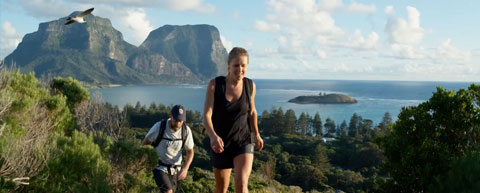Why The Arkaba Walk is an Invitation to Learn and Feel the Real Australia
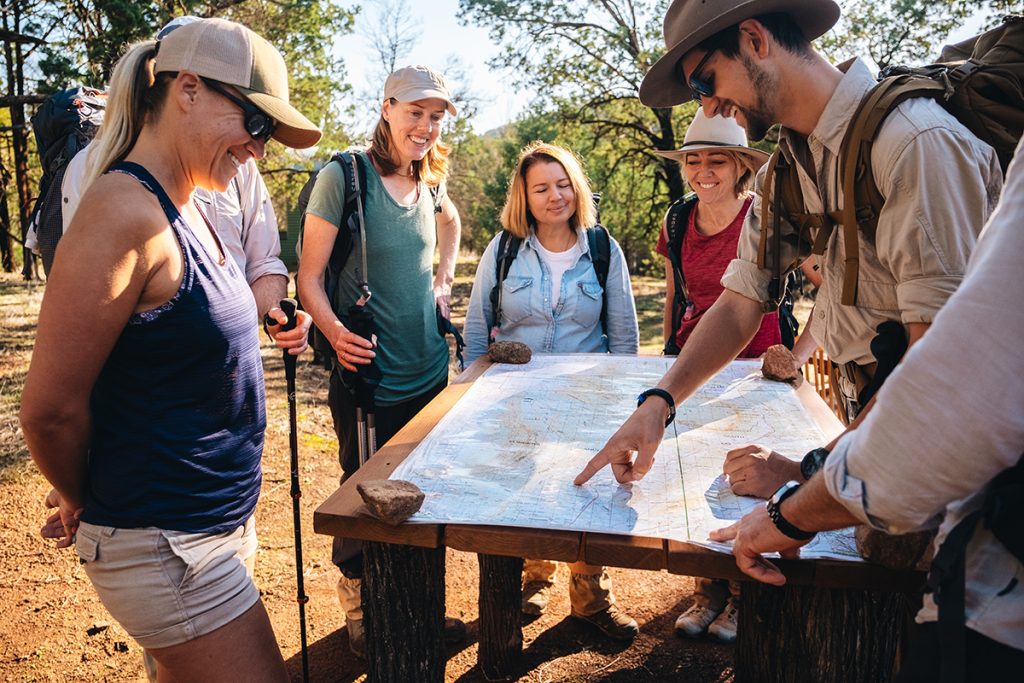
What does it mean to truly know a place? For many, it’s not enough to simply pass through a landscape, we want to understand it, to listen and learn, and to feel a genuine sense of connection. The Arkaba Walk in South Australia’s Flinders Ranges offers this kind of experience: a chance to walk in ancient footsteps, guided by those who know the land intimately, and to absorb stories that stay with you long after the journey ends.
Have you’ve found yourself searching for more than just breathtaking views, hoping for real insight, quiet wonder, and the comfort of being welcomed as part of something incredibly meaningful? The Arkaba Walk is an invitation to learn, to feel, and to remember why we travel in the first place.
Through guided walks, shared stories, and moments of quiet observation, you’ll gain a deeper understanding of Australia’s ancient outback, its ecological challenges, and the personal histories woven through this vast landscape. The Arkaba Walk is an extraordinary opportunity to learn, from the land, its wildlife, and the passionate people who care for it. And you’ll find yourself changed – calmer, more connected, and genuinely moved.
Quick Summary
- The Arkaba Walk is more than a hike; it’s a deeply personal, educational experience in the Flinders Ranges.
- Learn first-hand from expert guides about geology, wildlife, and conservation efforts.
- Sensory moments – the colours at sunset and the hush of dawn – these moments stay with you long after the visit.
- Ideal for those seeking space, nature, peace, and perspective.
South Australia in Motion: From Vineyards to Red Ranges
Consider the journey itself as part of the Arkaba experience. Leaving Adelaide, the country opens gently, from vineyards and paddocks to saltbush plains and the first hint of ancient ridgelines ahead. There’s time to settle, to watch river red gums trace dry creek lines, to notice the changing light and the soft scent of eucalyptus through an open window. A relaxed picnic stop sets the outback pace, and the scenic drive home becomes a quiet debrief, with new views and small towns rolling by as you swap highlights with your driver. You might spot emus moving through the scrub or a wedge-tailed eagle riding a thermal, and when in season, roadside bloom adds a wash of colour. By the time you arrive, you’re already tuned to South Australia’s rhythm, and by the time you leave, you understand why the long road feels worth every kilometre.
What Makes the Arkaba Walk Different?
There are guided walks, and then there’s the Arkaba Walk. Here, learning is inseparable from every step. Fiona from Sydney said after her visit “It’s an extraordinarily special part of Australia. Having travelled extensively around the globe, Arkaba pulls on the heartstrings for many reasons – the expanse, the colours at sunset, the magnificent wildlife in moments both expected and unexpected, and the tireless effort of staff to deliver a profoundly Australian experience. For those living in cities craving space, nature, and peace, or for visitors from overseas, you’ll never feel quite the same again after having lived and experienced a stay at Arkaba.”
Walking with Purpose: Nature as Teacher
From the first crunch of dry earth under your boots, you’re learning. Not just about the Flinders Ranges’ dramatic geological history, incredible ancient seabeds and towering ridgelines, there is an extraordinary delicate balance between wildlife and environment.
Guides at Arkaba are storytellers as much as naturalists. You might find yourself tracing the path of a yellow-footed rock wallaby, pausing in silence while a wedge-tailed eagle glides overhead. The guides share insights into conservation, pointing out where regeneration projects are bringing the land back to life after years of overgrazing.
Walking at Arkaba isn’t rushed. There’s time to stop and notice the scent of eucalyptus warming in the sun, to listen to the distant call of corellas, and to feel the shifting texture of the earth beneath your feet. Dusk brings a hush that invites reflection. It’s peace many city dwellers realise they’ve been missing.
Real Stories, Real People
What sets Arkaba apart is the human element. Staff are passionate and generous with their hospitality and their stories, whether its explaining which wildflowers have returned thanks to conservation, or sharing a favourite spot for stargazing. Every meal is an opportunity to ask questions, swap impressions, and learn from others’ experiences.
Many travellers mention how staying here feels like reconnecting to nature, to community, and to themselves. This is a place where notes are scribbled in travel journals, and where conversations linger over good food and local wine.
Opportunities to Learn and Grow
- Geology: Learn how the Flinders Ranges were formed, and spot ancient fossils.
- Wildlife: Identify kangaroos, emus, and elusive rock wallabies.
- Conservation: Understand the ongoing projects to restore native habitat and reduce introduced species.
- Culture: Hear about the deep connection Aboriginal peoples have with this land, honouring thousands of years of wisdom.
- Personal Reflection: The landscape’s scale and silence invite your own thoughts. What matters most, what you want to remember.
A Walk that Stays with You
Many guests say the real gift of the Arkaba Walk comes later. It’s in the memory of light changing on ancient stone, a surprising animal encounter, or the feeling of belonging to a bigger story. As Fiona from Sydney shared after her visit “You’ll never feel quite the same again after having lived and experienced a stay at Arkaba.”
Frequently Asked Questions
Q: How challenging is the Arkaba Walk?
A: The walk is moderate, covering about 45km over four days with plenty of breaks and support. Guides adapt the pace to suit the group.
Q: What will I learn about wildlife and conservation?
A: Guides share insights into local species, the challenges they face, and practical conservation work happening on the property. You’ll see signs of rewilding and habitat restoration first-hand.
Q: Is this suitable for solo travellers or those over 50?
A: Absolutely. Many guests are solo or in the 50+ age group, valuing the social and reflective aspects of the experience.
Q: What is the accommodation like?
A: Accommodation blends comfort with connection to nature: think swag beds under the stars or a rustic homestead with heartfelt hospitality.
Q: How do I get there?
A: Return road transfers are included in the 4-night Arkaba Walk itinerary. The journey from Adelaide takes around 5 hours with a relaxed picnic lunch enroute. The return follows a scenic route of about 7 hours, with lunch included. Many travellers find the road time becomes part of the Arkaba experience. It’s unhurried time to take in South Australia’s wide skies and changing colours, to shift out of city pace, and to let the outback come gently into focus. Think of it as a soft arrival and a slow, grateful farewell.
Picture the glow on the ranges at day’s end, the hush before dawn, and stories shared over a simple, good meal. Start dreaming about your next adventure. To learn more visit the Arkaba Walk and our Frequently Asked Questions about all of our Great Walks of Australia.
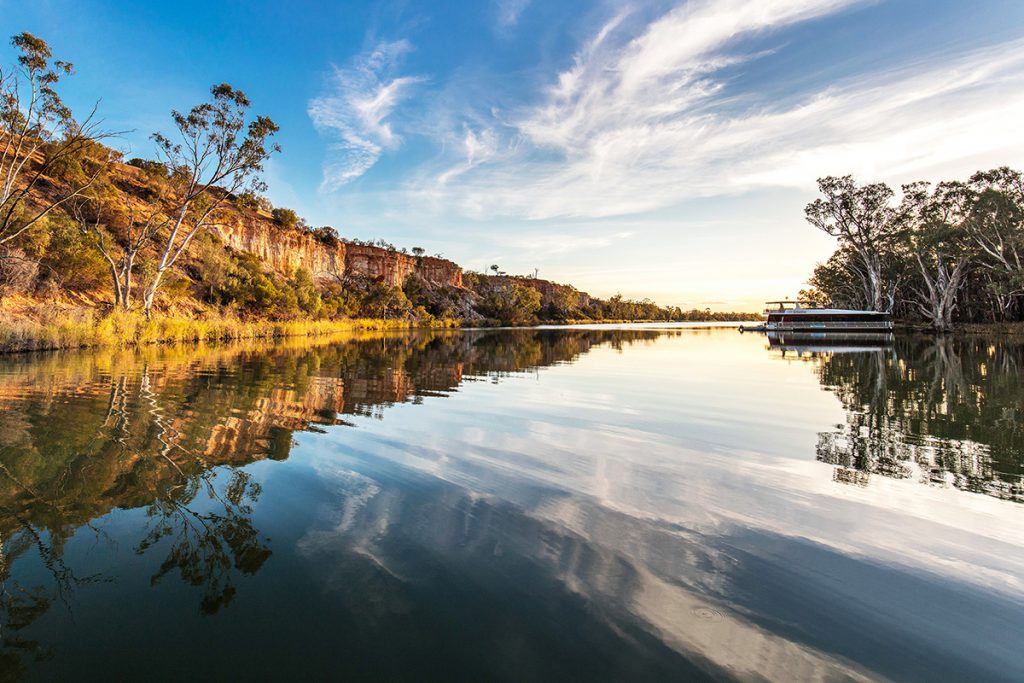
The mighty Murray River is home to one of Australia’s most iconic freshwater fish – the Murray Cod. Once abundant, this legendary species is now listed as vulnerable in South Australia. Habitat loss, overfishing, altered river flows, and the removal of millions of fallen logs (“snags”) during the paddle steamer era have left the Murray Cod without the safe breeding and feeding grounds they once relied on.
Murray River Trails, operator of the Murray River Walk, has launched an inspiring regenerative tourism project to help change that story – building “fish hotels” to restore essential habitat and give Murray Cod populations a fighting chance.
Why It Matters
From the Millennium Drought to climate change and river regulation, the Murray’s ecosystem has faced decades of pressure. Re-snagging the river helps:
- Increase Murray Cod populations
- Boost numbers of other native species
- Reduce invasive carp through natural predation
- Enhance the benefits of small and medium floods that trigger breeding
This is regenerative tourism in action – going beyond low impact to actively restore river health.
What’s a Fish Hotel?
A fish hotel is a large, purpose-built structure made from Murray River red gum logs, designed to mimic the natural snags that native fish use for shelter and breeding. Each hotel:
- Weighs around 1.4 tonnes
- Is built to last for over a century
- Includes a concrete breeding pipe to protect Murray Cod eggs from predators
- Provides safe shelter for other native fish like Golden Perch and small-bodied species
Within months of installation, fish hotels can be buzzing with life – offering food, shelter, and breeding habitat in sections of the river where natural snags are scarce.
The Project Plan
Working with conservation partner OzFish, Murray River Trails will install 10 fish hotels between Lock 5 and Lock 6 in 2025–2026. Experienced local fish habitat expert Kym Manning will lead construction and installation, drawing on more than 15 years of fish habitat restoration experience.
First Nations Connection
The Murray Cod, or Pondi, is central to the Dreamtime creation story of the river. Local First Nations people have supported the project and continue to work with OzFish on fish monitoring programs, ensuring cultural heritage and environmental restoration go hand in hand.
See It for Yourself
Guests on the Murray River Walk may have the chance to cruise above the fish hotels, using a side-scan sonar to spot their new “residents” and learn about the project directly from guides. To experience this remarkable stretch of river and learn more about the Fish Hotel project in person, join the Murray River Walk – one of Australia’s signature guided walking experiences.
The four-day Arkaba Walk in South Australia is an immersive story of the land: both the ancient Ikara-Flinders Ranges and a 63,000km former sheep station turned nature conservancy being painstakingly re-wilded.
We talk to Arkaba station owner Charles Carlow to find out more about the journey of this remarkable property, their work in sustainability and conservation, and what the future holds.
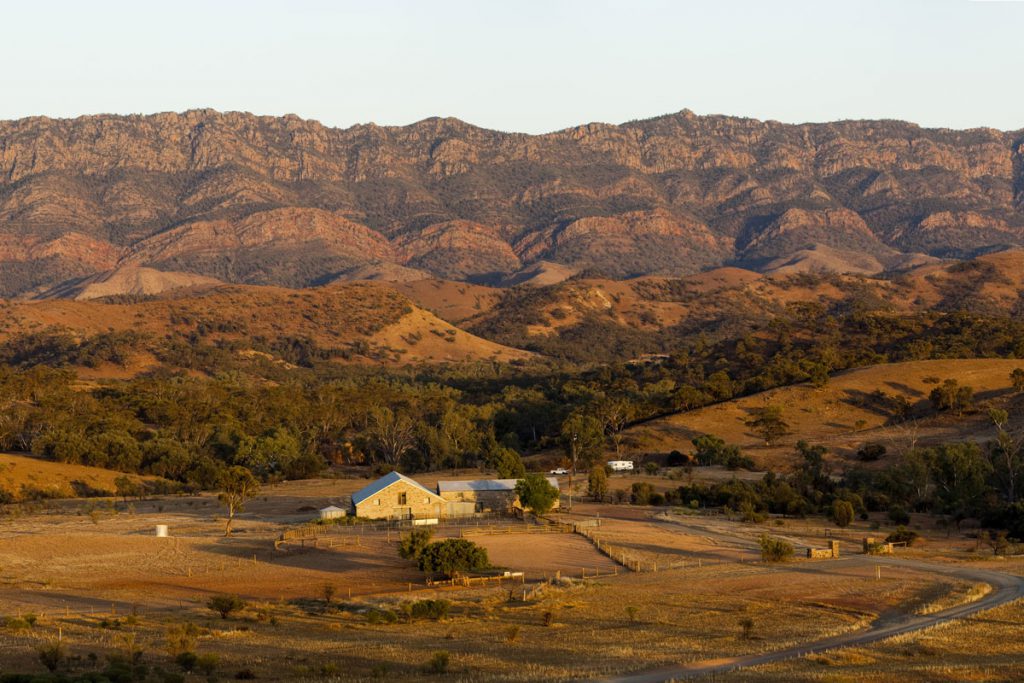
A desire for its business to operate in tandem with its environment is what underpins the philosophy behind The Arkaba Walk, showing off one of Australia’s most spectacular outback landscapes.
Rimmed by spectacular ochre cliffs, while native cypress forest, ancient red gums and hardy wildflowers blanket the undulating landscape, it’s hard to imagine the Arkaba Conservancy, 400 kilometres north of Adelaide, in any other form.
However, less than 10 years ago, this 63,000 km nature and wildlife conservancy in South Australia’s outback Ikara-Flinders Ranges was a working sheep station.
After 150 years of livestock grazing, in marginal semi-arid country, the decision was taken to remove livestock from the property and to focus on enabling the landscape to recover and native species to re-establish themselves.
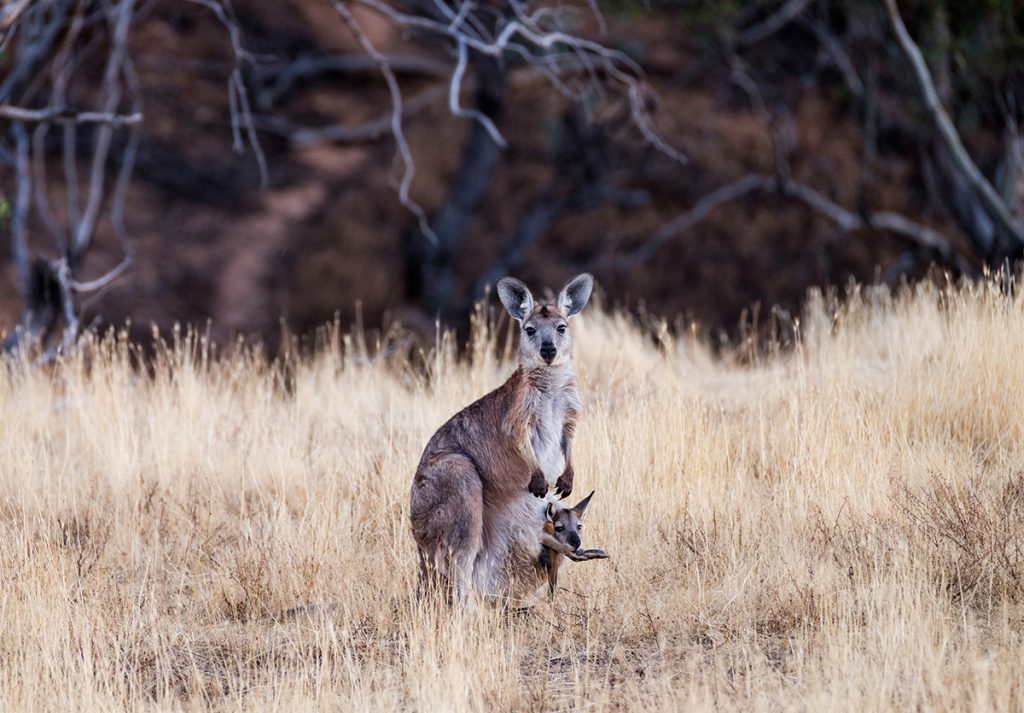
“The terrain at Arkaba meant that it was not the easiest of properties on which to run sheep,” says Arkaba’s current custodian, Charles Carlow, of the property’s former condition.
“Due to Arkaba’s rugged topography, some of the steeper and less accessible range country was not so impacted by livestock, and the previous owners had done a lot to reduce the impact of rabbits, however, the flatter sections were clearly heavily grazed.”
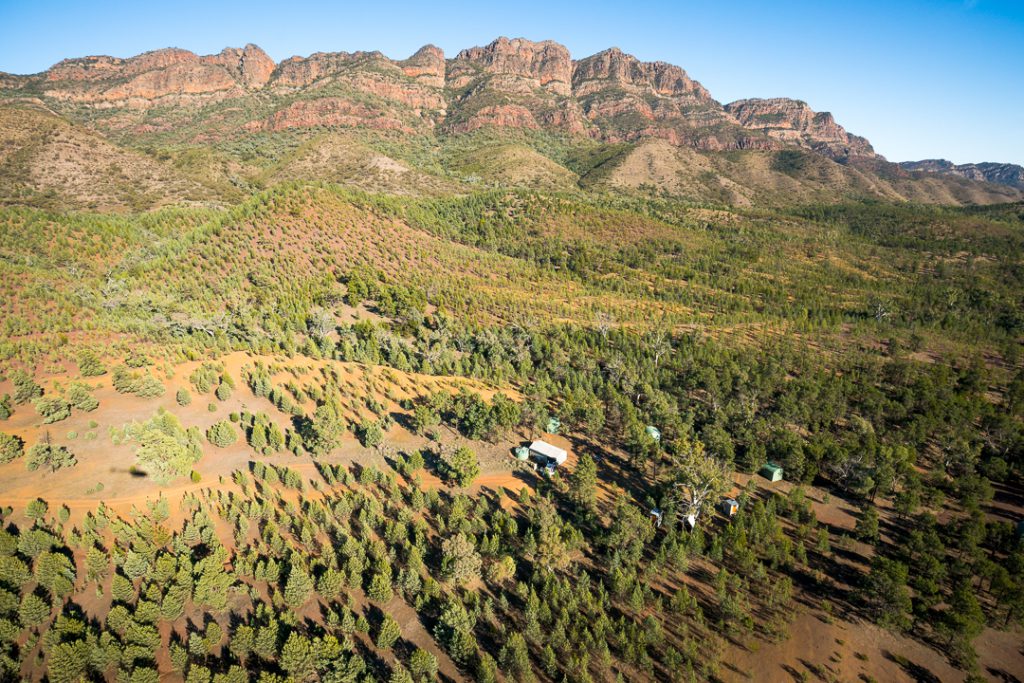
He was undeterred. Inspired by the outback station and the ancient ranges keeping guard over it, Charles and Wild Bush Luxury took on Arkaba for its tourism potential, not its agricultural one, driven by the desire to tend to the land and create unique and immersive, conservation focused experiences.
“Arkaba’s incredibly beautiful scenery is inspiring in itself but also provides the perfect backdrop to engage guests with the bush and the issues that threaten Australia’s biodiversity.”
“Aside from what we can do on the ground in keeping feral herbivores and predators out of the landscape, one of the best ways tourism can contribute to conservation is through connecting people to the bush and opening eyes and minds.”
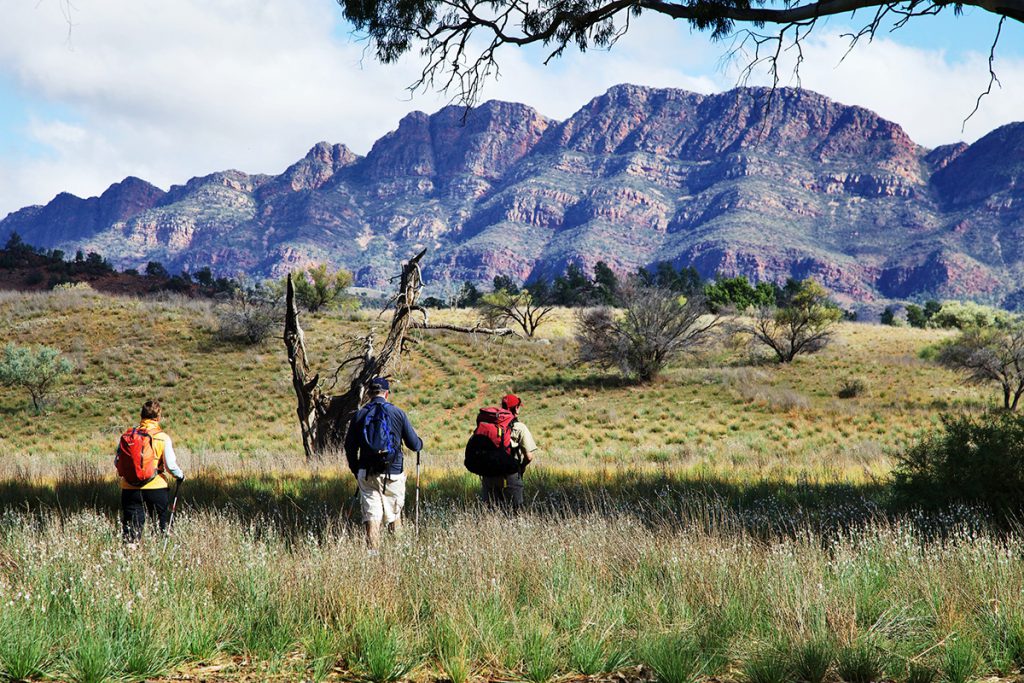
Fast forward to today, and Arkaba is a carefully protected slice of outback splendour – a perfect example of how tourism and conservation can work for the benefit of each other.
It’s a transformation that has earned the property its place in the Long Run, a collection of tourism businesses around the world that are focused on excellence in sustainable tourism and collectively shaping tourism as a force for good in the environment.
These days, Arkaba’s tourism arm is centred around the renowned Arkaba Walk: a fully-hosted, all-inclusive four-day walk where you not only witness the environment in recovery, but take an active role in its revival.
Covering 45 kilometres on foot in spectacular surrounds, this outback hiking adventure includes exclusive accommodation sleeping under the stars at off-grid walking camps, as well as a night at historic Arkaba Homestead – one of many hallmarks of the property’s pastoral heritage.
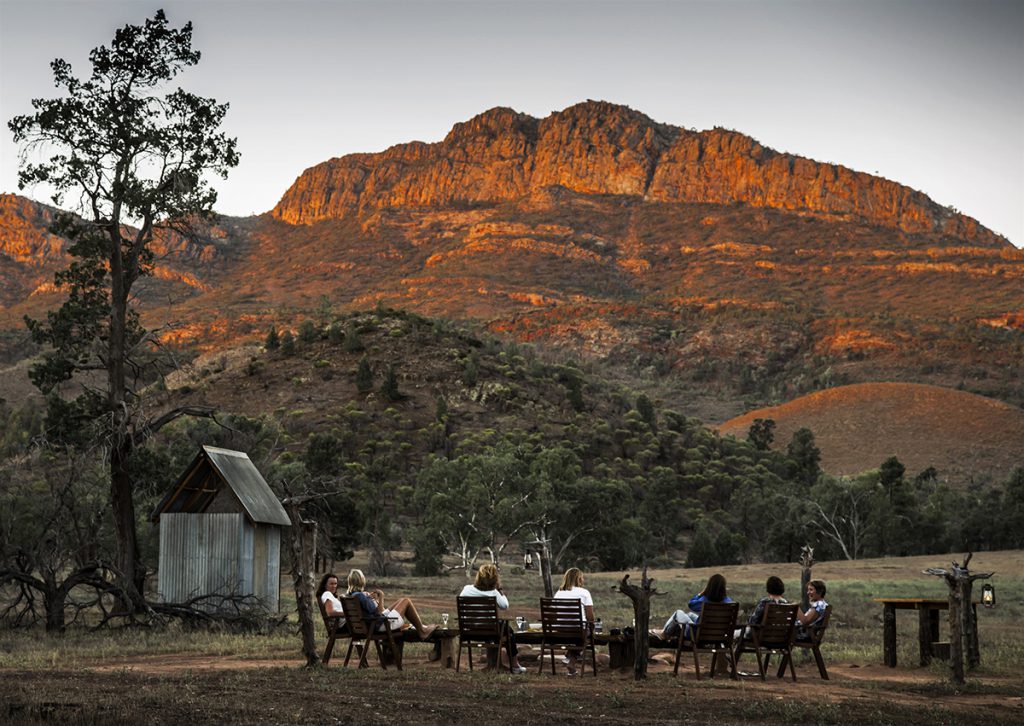
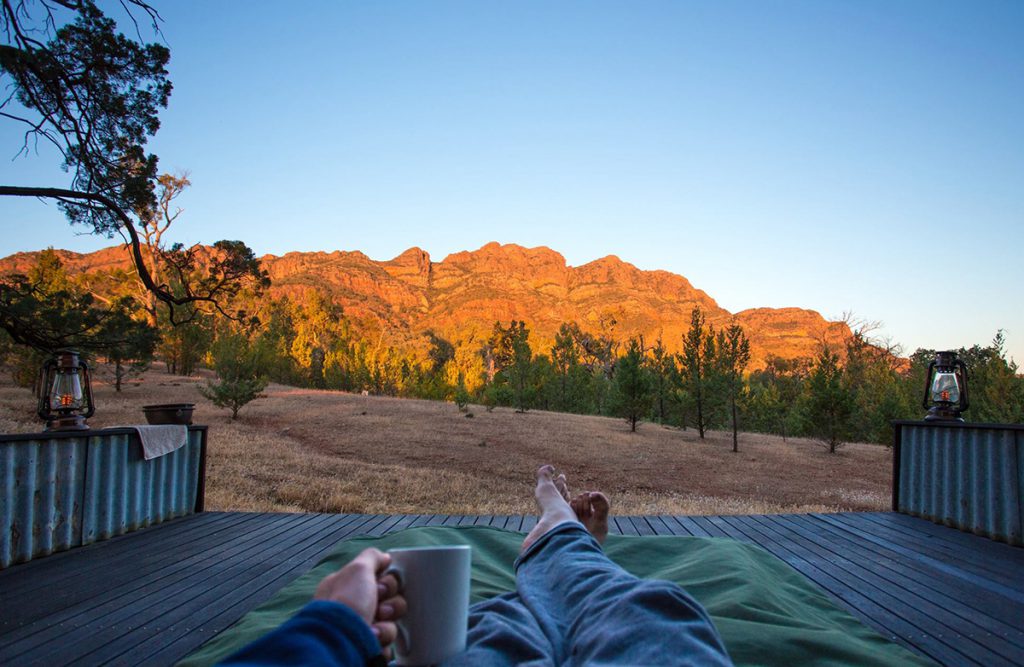
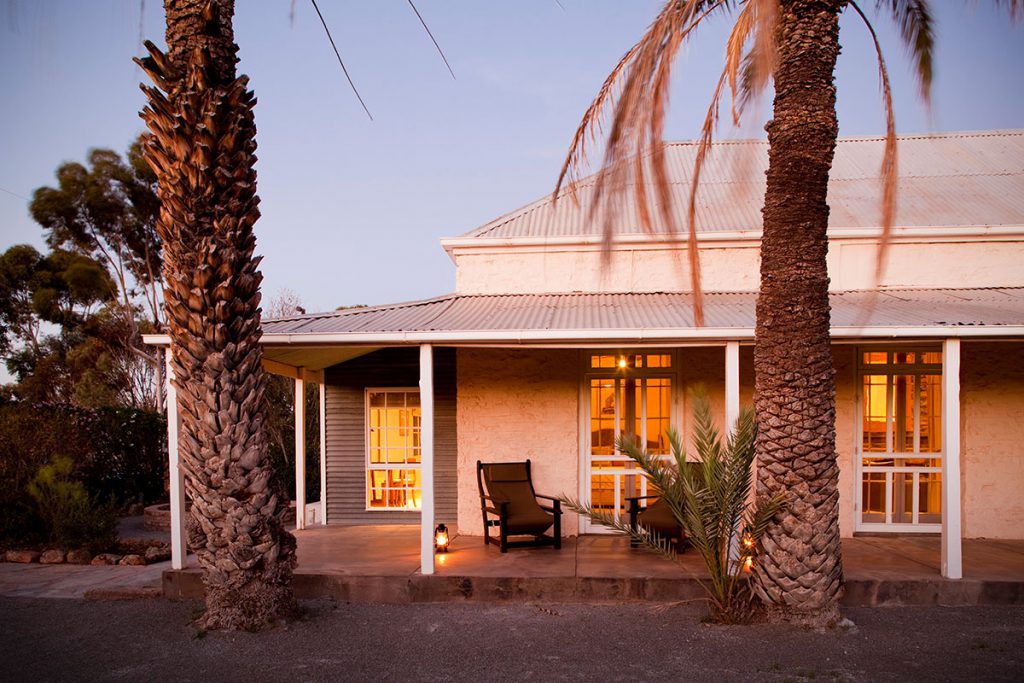
As Carlow declares, “our future is inextricably linked with the health of our environment,” guiding Arkaba’s mission to go beyond protecting the natural landscape, but to educate and connect guests with the power of nature through this unforgettable outback walking experience.
Restoring what was
In the decade since Wild Bush Luxury took on Arkaba, efforts to restore the property have been multifaceted, spanning re-vegetation to pest control and repopulation of native species.
Unsurprisingly, the station’s remaining sheep were a major focus at first, the last of which were removed in 2013. This saw native pioneer species start to reappear and the return in numbers of Red Kangaroos and Western Grey Kangaroos.
Ongoing efforts to eliminate other feral herbivores and predators, such as feral goats, cats, foxes and rabbits, has also had a significant impact on the recovery of the landscape, its vegetation and the wildlife that calls it home, especially the abundant birdlife, including Mulga parrots.
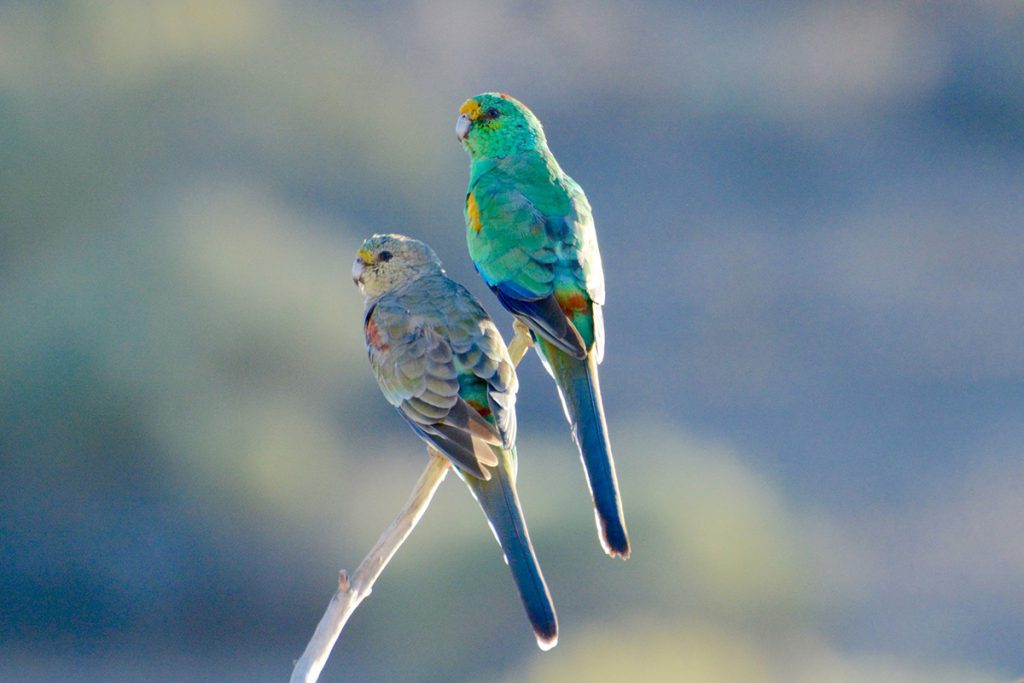
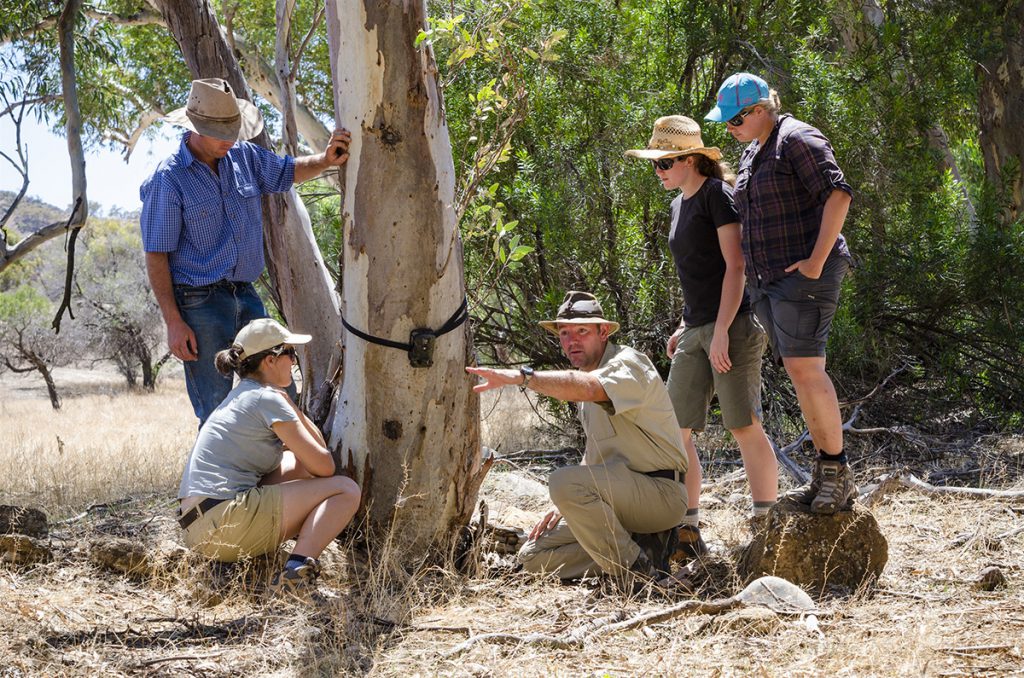
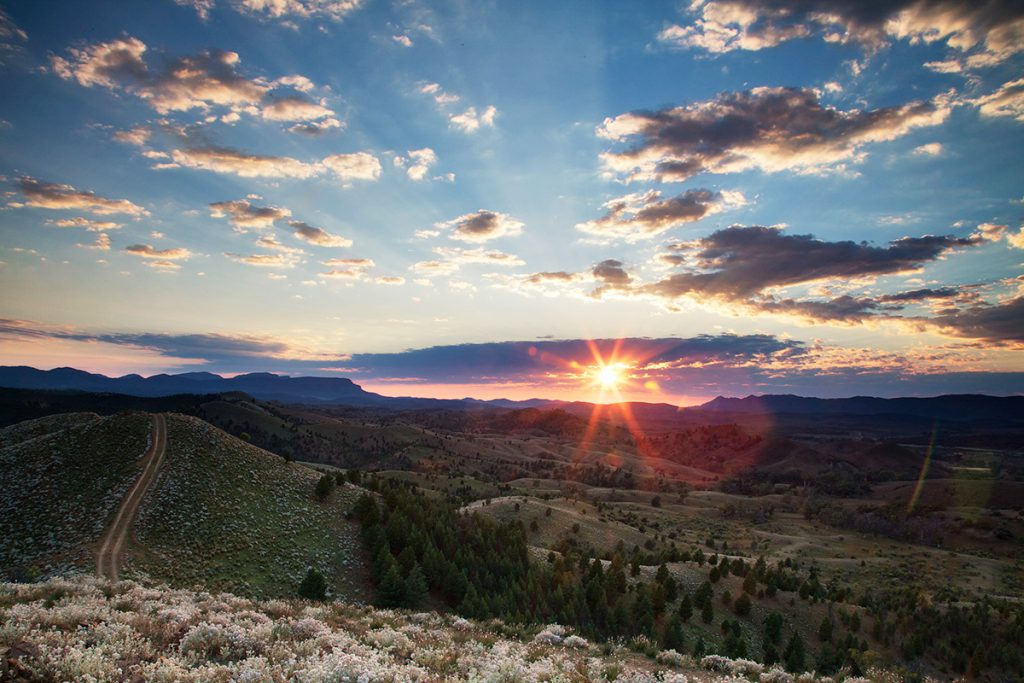
And it’s not just introduced fauna that has been a major focus in rehabilitating the property; in rewilding Arkaba, the removal of sheep, goats and rabbits from the landscape is helping arrest soil erosion, and allowing native trees, shrubs and grasses to regenerate naturally.
The rewilding has even extended to the creation of a native garden around the homestead in place of the water-thirsty European style lawn, integrating the lodge more naturally with the surrounding landscape.
Through bi-annual vegetation and spring surveys, it is clear that these environmental initiatives are generating a recovery in natural vegetation cover.
With the removal of feral predators, it is estimated that over the past ten years, millions of native animals and their offspring have been allowed to survive and reproduce and, in some cases, return to a landscape that they have been absent from for many years. This includes near-threatened Western Quolls and Brushtail Possums, as well as Yellow-footed Rock Wallabies and echidnas.
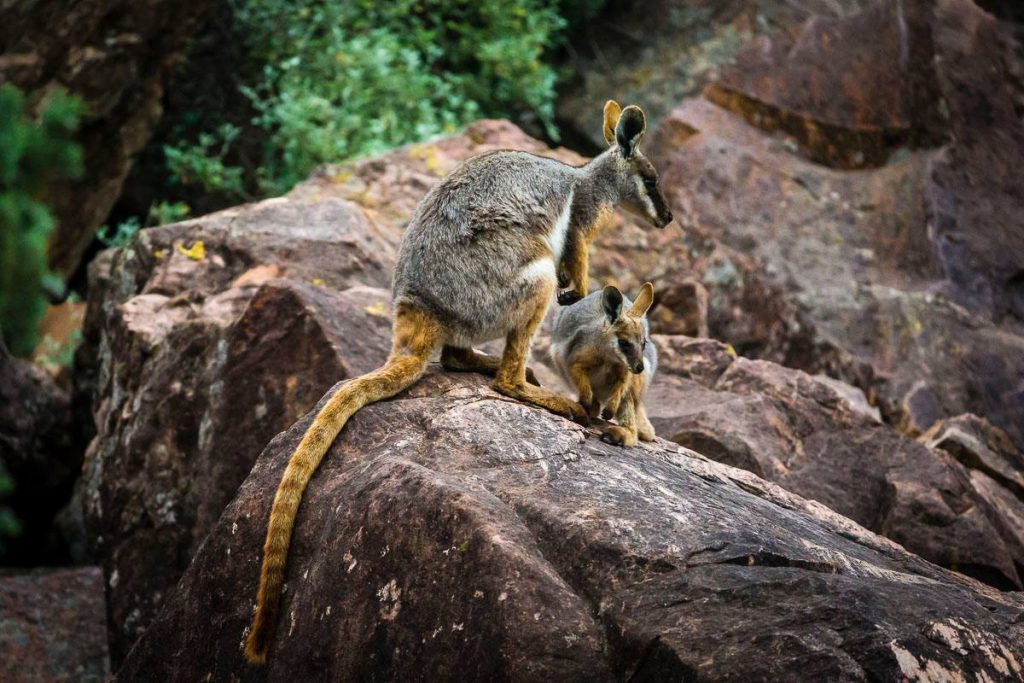
While 10 years’ work is a tiny window in the ecological history of the Flinders Region and there is a never-ending journey of recovery ahead, it is at least an optimistic sign for environmentalists and nature lovers alike.
Future proofing for the next generation
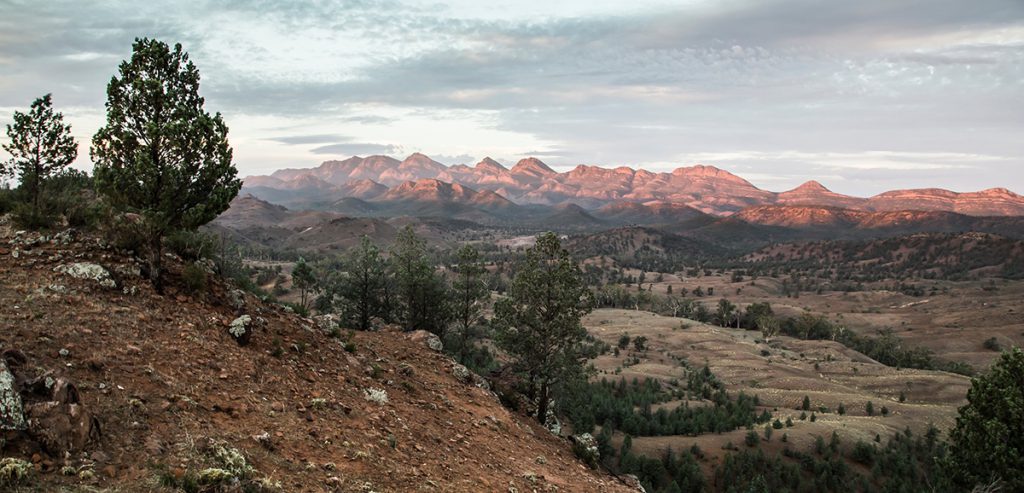
Beyond transforming Arkaba from sheep station to wildlife conservancy, the Arkaba team have worked tirelessly to ensure all current operations are considered with an environmental lens, ensuring the ecological footprint of The Arkaba Walk is as light as possible.
The environment is at the heart of every decision made: from choice of linen to zero plastic bottles; the siting of each walking camp to avoid any vegetation clearance and using native bush to provide privacy and natural cover; the off-grid camps, operated with minimal carbon emissions (and maximum connection to nature); and light provided by campfire or solar lanterns.
Food and wine served is sourced exclusively from local South Australian producers, ensuring guests experience a taste of the region, while achieving minimal food mileage and supporting the local community.
As Carlow always intended, “the vision behind the Arkaba Walk is to really connect our guests with the country – this is so much more effective when you’re out on foot and your senses are attuned to the surrounds.”
“Sharing our knowledge and passion helps immerse our guests in the finer nuances of the bush and to understand the connections in the landscape.”
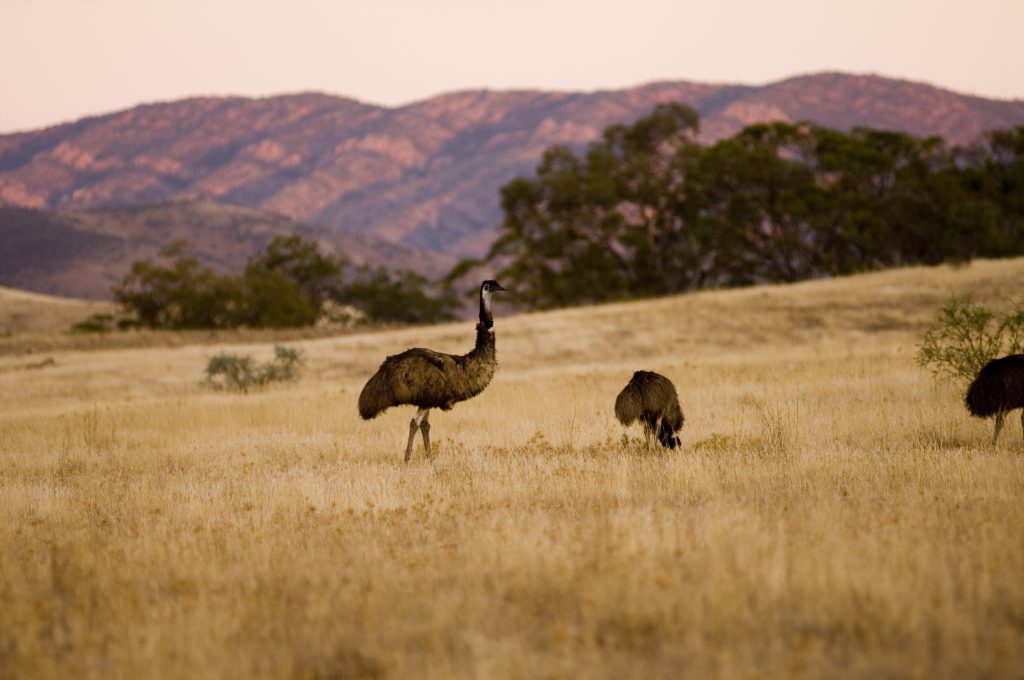
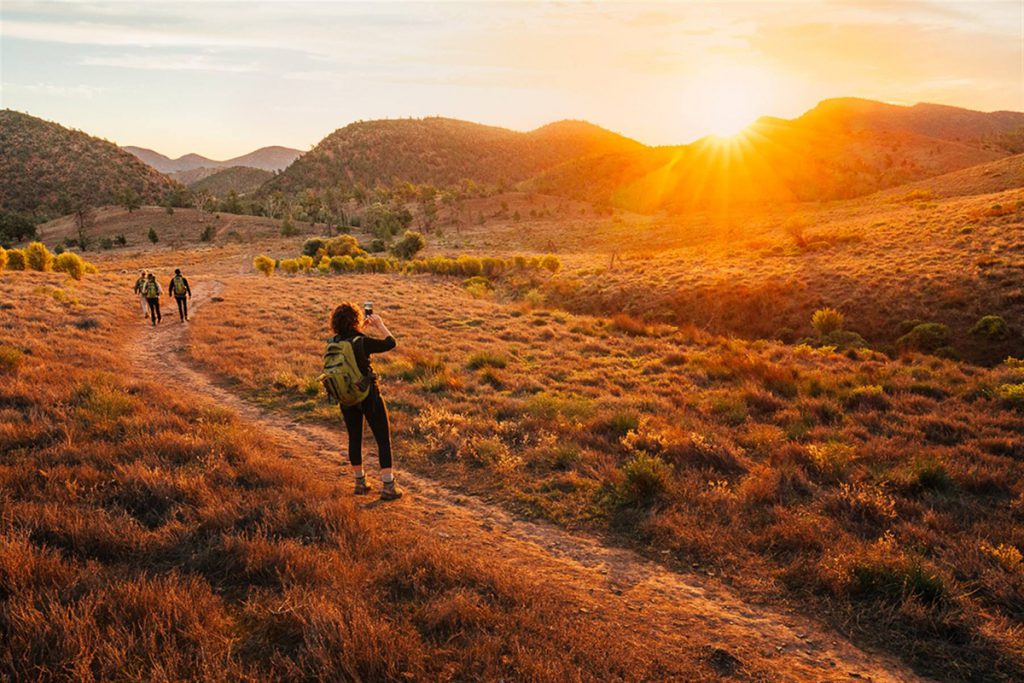
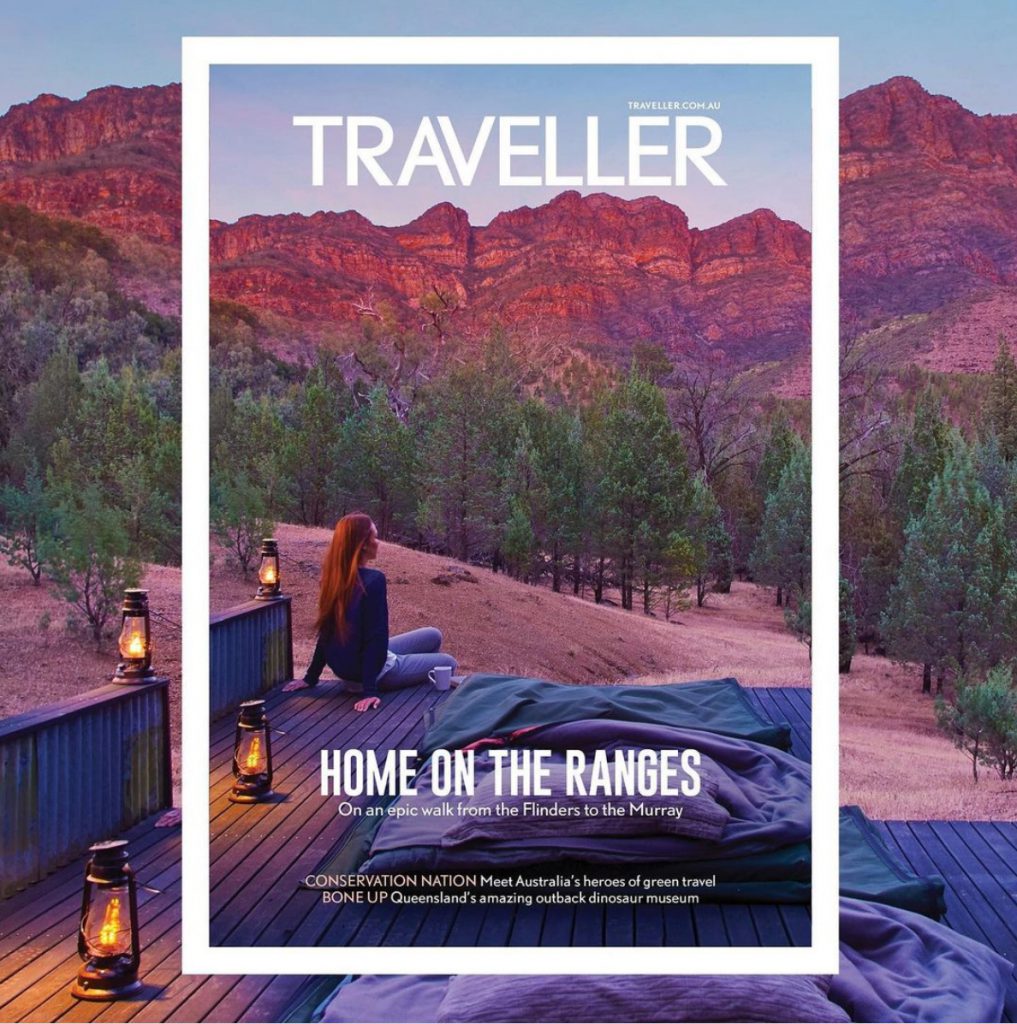
“Ten days ago, I’d have struggled to identify a single flower, bird call or animal track in either of these magnificent Australian landscapes. Now, thanks to this clever and considering pairing of walks, led by two sets of infectiously passionate and wonderfully knowledgeable guides, they feel like reassuringly familiar treasures.” Rob McFarland, Traveller, Sydney Morning Herald/The Age.
Ranges To River combines two of the Great Walks of Australia – Arkaba Walk and Murray River Walk – into one magical nine day, 80 km hiking adventure through some of South Australia’s most iconic and stunning outback landscapes.
Traveller Magazine (Sydney Morning Herald/The Age) recently came and experienced the double Great Walk, profiled in their July 2021 cover story.
Read the full Ranges To River Double Great Walk Of Australia article in Traveller
Interested in experiencing it for yourself?
Remaining dates of Ranges To River Double Great Walk in 2022 are:
June 23 – July 1, 2022
July 28 – August 5, 2022
August 24 – September 2, 2022
Get more information and book the Ranges To River Walk here


Book a Murray River Walk departing in the month of July 2019 and discover the warmth of the Riverland with their Winter Explorer Package…
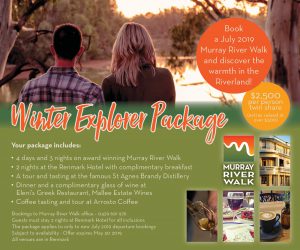
The Winter Explorer Package includes:
– 4 days and 3 nights on award-winning Murray River Walk;
– 2 nights at the Renmark Hotel with complimentary breakfast;
– A tour and tasting at the famous St Agnes Brandy Distillery;
– Dinner and a complimentary glass of wine at Eleni’s Greek Restaurant, Mallee Estate Wines; and
– Coffee tasting and tour at Arrosto Coffee
Price $2,500pp twin share (package inclusions total $300 additional value)
Terms and Conditions Apply – Bookings must be made to Murray River Walk office, please call 0429 691 976 or email info@murrayriverwalk.com.au . Guests must stay two nights at Renmark Hotel for all inclusions. The package applies only to new bookings for July 2019 departures. All venues are in Renmark, South Australia.
Book now or find out more about the Murray River Walk here.
In the second edition of our ‘Meet our Great Walks Guides’ series, we’re chatting to an expert guide from outback South Australia…
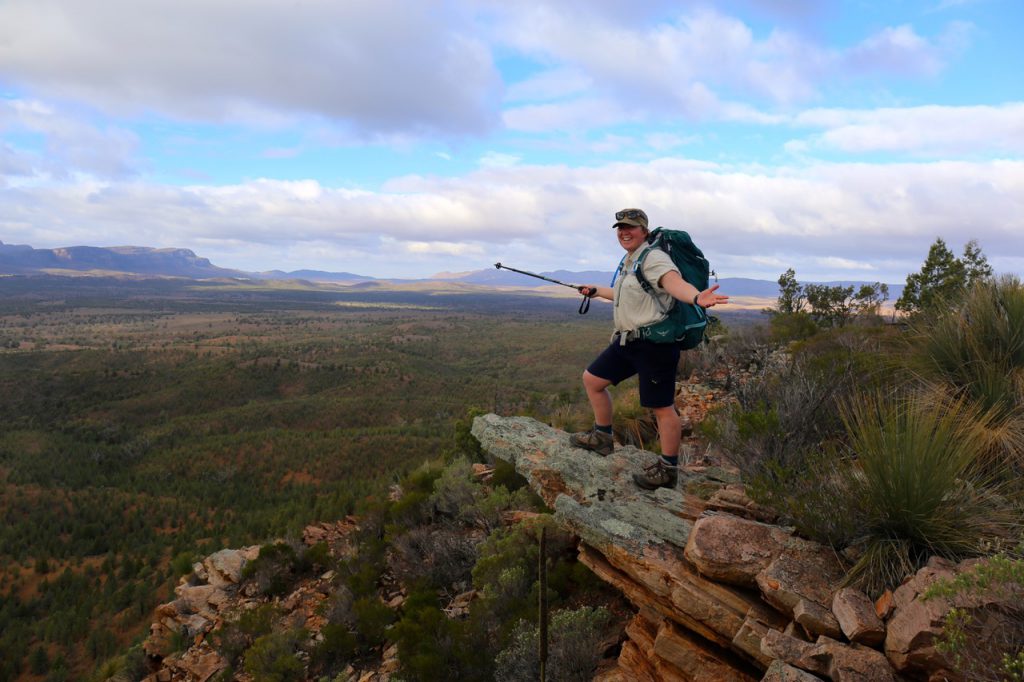
Introducing…
GUIDE: TORI
WALK: THE ARKABA WALK
What got you started with guiding?
I sort of fell into guiding after meeting one of Arkaba’s existing guides on an ecology field trip while
I was studying at uni. My tertiary study was all conservation/environmental management based, so
when he told me they had jobs going I jumped at it and learnt all my guiding in situ.
What do you find most interesting about working at Arkaba?
Conservation is key for me and I enjoy working in the field most of all. I also enjoy meeting people
from all over the world, and I like coming to work and knowing that no two days will be the same.
Is there something you love showing/doing with guests?
I really enjoy pointing out the ways in which the property is coming back in the absence of stock,
after such a long period as a sheep station. I think it’s important that guests understand that their
time on property is actively contributing to its regeneration and all of our other conservation efforts,
so I like sharing that with them. I’m also an avid birder and love when we get guests that share
that passion!
Finally, what do you think guests love most about their stay at Arkaba?
I think most guests enjoy the chance to relax and take in a distinctly unique environment. The
excellent food and wine probably don’t go astray either!
Keen to experience Tori’s life first hand? Take a look at The Arkaba Walk itinerary or find out next departure dates here.
